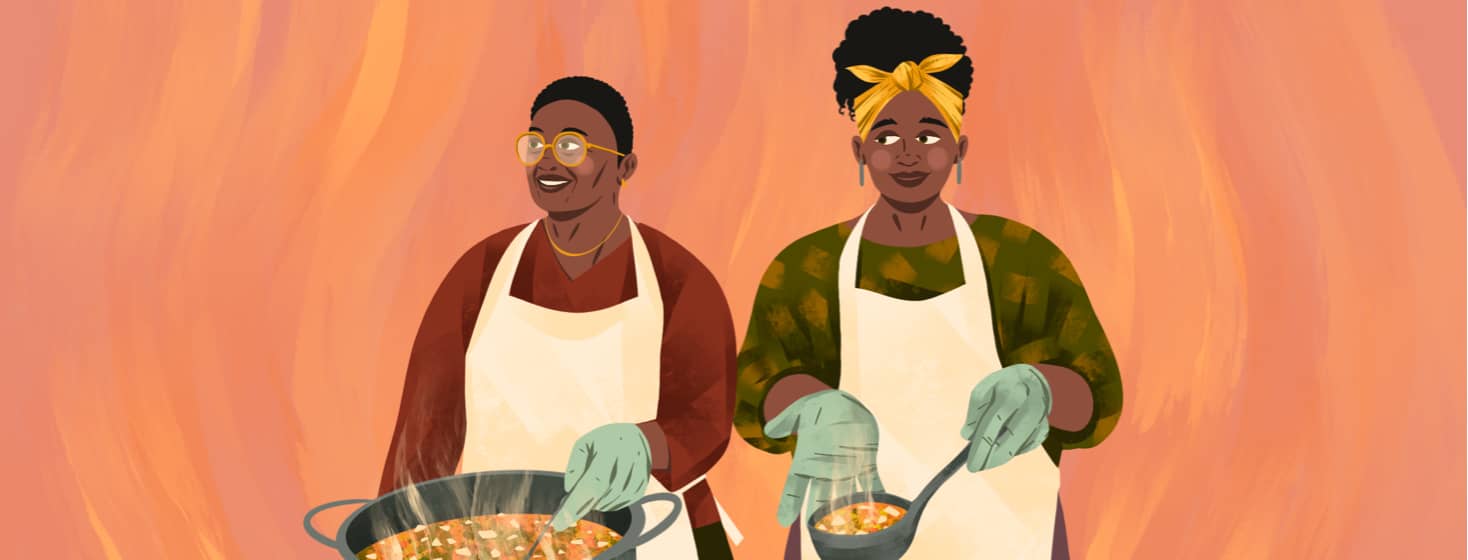The Need to Feel Needed: Generativity and Alzheimer's
Psychologists have found that when we help others or reflect on ways we have helped others, we have better psychological well-being, higher self-esteem, better physical health, and even live longer.1,2 This phenomenon is called generativity when specifically talking about the older generations.
There is a vast amount of research on volunteering, which suggests that volunteering improves the quality of life of volunteers of all ages.3 In particular, older adults who perceive themselves as useful towards others have a lower risk of disability, death, and better psychological well-being than those who perceive themselves as making less of a contribution.4
The importance of remaining active
It is important to stay active as we age and maintain a sense of purpose.5 Aging can be a difficult adjustment - as we may have to adapt in new ways. Though retirement was once seen as the light at the end of the tunnel, it can sometimes contribute to depression and loneliness because we tend to need purpose and social interaction to feel happy.6
What is generativity?
Generativity is a concept in psychology that concerns contributing to others, especially the next generation.7 We have a need to help or guide others, which may stem from a desire to leave behind a positive impact when we leave the physical world.
Many older adults achieve this goal through volunteer activities, babysitting grandchildren, religious involvement, or mentoring young adults in their profession.8 Generativity, or feeling useful towards others, is especially important for persons with Alzheimer’s.
Balancing safety with automony
Individuals with Alzheimer's, especially in the early stages, may experience depression as they come to terms with their diagnosis. They may have to give up activities and social engagements they once enjoyed. They can become withdrawn.
Even the most well-intentioned caregivers may restrict the activities and independence of their loved one with Alzheimer's out of fear for their safety. Some restrictions are difficult but necessary, like giving up driving. However, it is important to recognize that in some cases, restricting independence can do more harm than good, e.g. cutting their food when they are still capable of doing it themselves.9
Understandably, it can be tough to find the right balance between worrying about their safety and wanting to support their autonomy and quality of life.
Alzheimer's, generativity, and usefulness
Below are a few ideas for facilitating feelings of usefulness in individuals with Alzheimer's:
- Household tasks: Ask them to set the table, rinse vegetables, or fold laundry;
- Encourage time with grandchildren or friends, telling stories and giving advice;
- Ask them to teach someone a skill (e.g. dancing, painting, music);
- If you have a pet, encourage them to help look after it;
- Volunteer together (e.g. at a soup kitchen);
- Do something nice for others (e.g. bake and drop off cookies for firemen).
Try to find small, safe ways they can be helpful, and think about the hobbies they always enjoyed in addition to activities you might be able to enjoy together.
A special lesson from Maya Angelou
Maya Angelou said, "People will forget what you said, people will forget what you did, but people will never forget how you made them feel." Her words provide especially sage advice for interacting with individuals with memory loss.
Certain abilities are affected by Alzheimer's disease, but the ability to feel pride, dignity, and the need to feel connected to others remains.9 Your loved one may not be able to recall an exact conversation you had yesterday, or what activity you did together, but they can sense how you feel and they too, can feel.
An Alzheimer's diagnosis can result in feeling stigmatized, socially isolated, and unvalued. As caregivers, family members, advocates, and friends, we have an important opportunity to help our loved ones feel good, useful, and needed whenever possible.
Interested in more on progression and support through Alzheimer's? Check out Alzheimer's Progression: Support Through the Stages.

Join the conversation